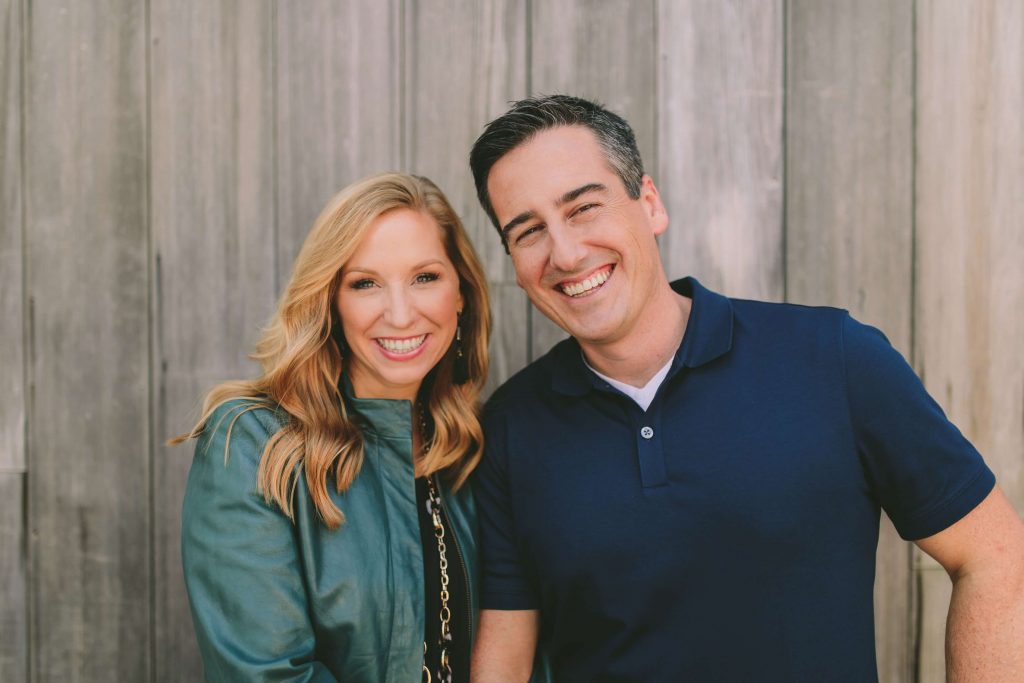I’ve never been in a church where I didn’t meet someone who had been burned by “accountability.” It is easy, in our quest for holiness, to build superficial relationships we hope will motivate us to fight sin. But all too often these relationships miss the mark.
Consider this story from Nate Larkin’s book, Samson and the Pirate Monks:
You’ve probably seen that poor fellow who decided one day to be honest in a Christian meeting. Maybe he’d been caught in a sin, so he really had nothing left to lose, or perhaps he was so plagued by guilt that he decided to take the church’s rhetoric about grace and forgiveness at face value and bare his soul in a desperate bid for freedom.
I remember a guy who did that. As soon as the fateful words were uttered he looked around, hoping somebody would say, “Me too,” but
all he heard were crickets. After a pause, a curious investigator launched into spiritual cross-examination. Then a few concerned “ex-sinners” gathered around him and preached a series of sermons disguised as prayers. Finally, a helpful brother prescribed three Scripture verses to be taken in the morning and at bedtime. Later, the guy was assigned a probation officer—excuse me, an “accountability partner”—who would check in on him for a few weeks to make sure he had actually turned around…
To make matters worse, as he left the meeting that poor guy was struck by the realization that he had just volunteered to become the church’s new topic of conversation. Suddenly he knew that telephone lines were already humming with the latest “prayer request.” Next Sunday, his suspicions were confirmed. The sidelong glances, the awkward silences, the careful distances kept by his former associates, their wives, and others, verified that his disclosure was now common currency in the congregation (p. 187).
The good news is not all accountability relationships look like this. In fact, the more we talk to those who use our Accountability Software, the more we realize how important genuine accountability is between close friends and spouses.
Deepening Friendships
Proverbs tells us, “There is a friend who sticks closer than a brother” (Proverbs 18:24). We all long for friends like this, but these sorts of friendships are only forged over time. We long for friendships like this, but they require of us a certain level of transparency and honesty, not just about our “big sins” but about the temptations we face and the state of our hearts.
Pastor Michael Wentzel has been using Covenant Eyes for a couple years and he says one of the greatest benefits has been that “my accountability partner and I have become like brothers.”
For many Covenant Eyes Accountability Partners, receiving a weekly e-mail is more than just their way of checking in on a friend: it is their weekly reminder of the importance of having deeper discussions with their friend. The accountability report becomes a natural springboard away from cliché conversation to transparent communication about the things that really matter.
Building Trust in Marriage
A new survey commissioned by the UAE Marriage Fund says poor communication between husbands and wives is the most common cause for divorce. In 2003, a survey from the American Academy of Matrimonial Lawyers found that 68% of divorce cases involved one party meeting a new lover over the Internet, and 56% involved one party having “an obsessive interest in pornographic websites.”
Statistics like these tell us that husbands and wives need to be honest about where they go and what they do online, making sure they catch problems early.
Eric Ludy, co-author of the best-selling When God Writes Your Love Story, considers himself a bland Internet user, but he loves the way using Covenant Eyes can help cultivate his behavior online. He calls Covenant Eyes one of the “wisdom protection points” in his life. He explains why he has his accountability report sent to his wife:
When you’re, in the back of your mind, thinking, “What would my wife think? Would she feel loved and cherished with what I’m looking at?” it greatly alters your behavior…That’s what Covenant Eyes does. It starts with the issue of “What would my wife think?” and it begins to train us for “What would God think?” Because isn’t that what really matters?
For couples who’ve experienced the emotional and relational hurt that comes from pornography use, accountability is one way that trust is rebuilt over time.
This is true of Troy and Melissa Haas. “I am one of the people he shares his report with,” Melissa says, but Troy also has many men he trusts receive his accountability report. Even though it has been years since he’s looked at pornography, Melissa says getting his report every week is one way of him saying, “My life is wide open for you. I love you. You have access to everything that I do.”
This is part 2 of a 3-part series on why Internet Accountability is important over the long haul. Next month we’ll talk about how Accountability strengthens your relationships with your kids.






